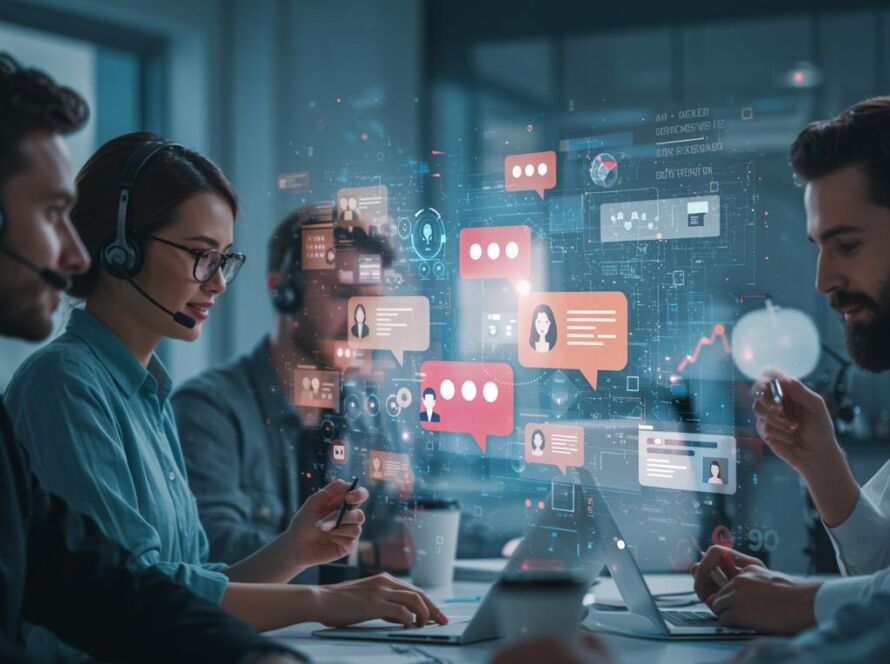AI Examples
AI Examples: Transforming Industries and Everyday Life
Artificial intelligence (AI) is rapidly changing the world around us, permeating various industries and impacting our daily routines. From personalized recommendations to self-driving cars, AI is no longer a futuristic concept but a tangible reality. This post explores practical examples of AI, showcasing its diverse applications and potential.
AI in Everyday Life
Personalized Experiences
AI powers the personalized recommendations we see on streaming platforms like Netflix and Spotify. These systems analyze user data, including viewing history and preferences, to suggest content tailored to individual tastes. This level of personalization enhances user experience and drives engagement.
Smart Assistants
Virtual assistants like Siri, Alexa, and Google Assistant utilize natural language processing (NLP), a branch of AI, to understand and respond to voice commands. They perform tasks such as setting reminders, playing music, answering questions, and controlling smart home devices, making our lives more convenient.
Social Media
AI algorithms are deeply integrated into social media platforms. They curate news feeds, personalize advertisements, detect and filter spam, and even recognize faces in photos. While these applications offer benefits, it’s crucial to be aware of the ethical implications surrounding data privacy and algorithmic bias.
AI in Business
Customer Service
AI-powered chatbots are increasingly used in customer service to provide instant support and answer frequently asked questions. These chatbots can handle a high volume of inquiries simultaneously, freeing up human agents to focus on more complex issues. This improves efficiency and reduces customer wait times.
Marketing and Sales
AI is revolutionizing marketing and sales by enabling targeted advertising, personalized product recommendations, and predictive analytics for lead generation. Businesses can leverage AI to understand customer behavior, optimize campaigns, and increase conversion rates.
Fraud Detection
Financial institutions utilize AI algorithms to detect fraudulent transactions in real-time. These systems analyze vast datasets of transactions to identify patterns and anomalies that indicate potential fraud, protecting both businesses and consumers.
AI in Healthcare
Disease Diagnosis
AI algorithms are being developed to assist doctors in diagnosing diseases like cancer and Alzheimer’s earlier and more accurately. These systems analyze medical images and patient data to identify subtle patterns that might be missed by the human eye, leading to improved patient outcomes.
Drug Discovery
AI is accelerating the drug discovery process by analyzing vast amounts of biological data to identify potential drug candidates and predict their efficacy. This significantly reduces the time and cost associated with traditional drug development.
Personalized Medicine
AI is paving the way for personalized medicine by tailoring treatments to individual patients based on their genetic makeup, lifestyle, and medical history. This approach promises to improve treatment effectiveness and minimize side effects.
AI in Transportation
Self-Driving Cars
Autonomous vehicles rely heavily on AI, particularly computer vision and machine learning, to navigate roads, detect obstacles, and make driving decisions. While still under development, self-driving cars have the potential to revolutionize transportation by improving safety and efficiency.
Traffic Optimization
AI is being used to optimize traffic flow in cities by analyzing real-time data from sensors and cameras. These systems can adjust traffic light timings and suggest alternative routes to reduce congestion and improve commute times.
Conclusion
The examples presented here merely scratch the surface of AI’s vast potential. As AI technology continues to evolve, we can expect even more transformative applications across various industries. Understanding the current and future possibilities of AI is crucial for individuals and businesses alike to adapt to this rapidly changing landscape and harness its power for positive impact. While ethical considerations and responsible development remain paramount, the future of AI is undeniably bright, promising to shape a more efficient, convenient, and innovative world.



